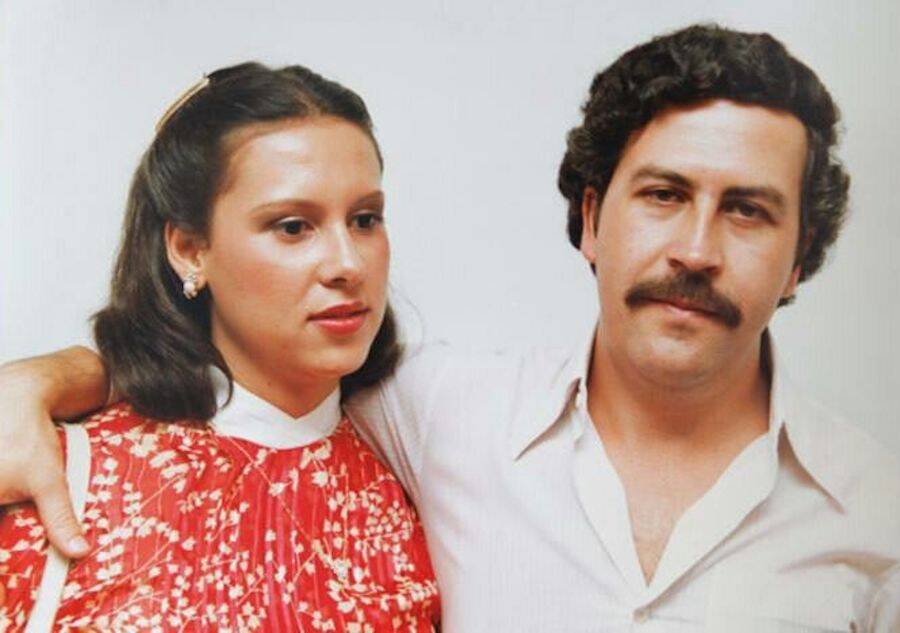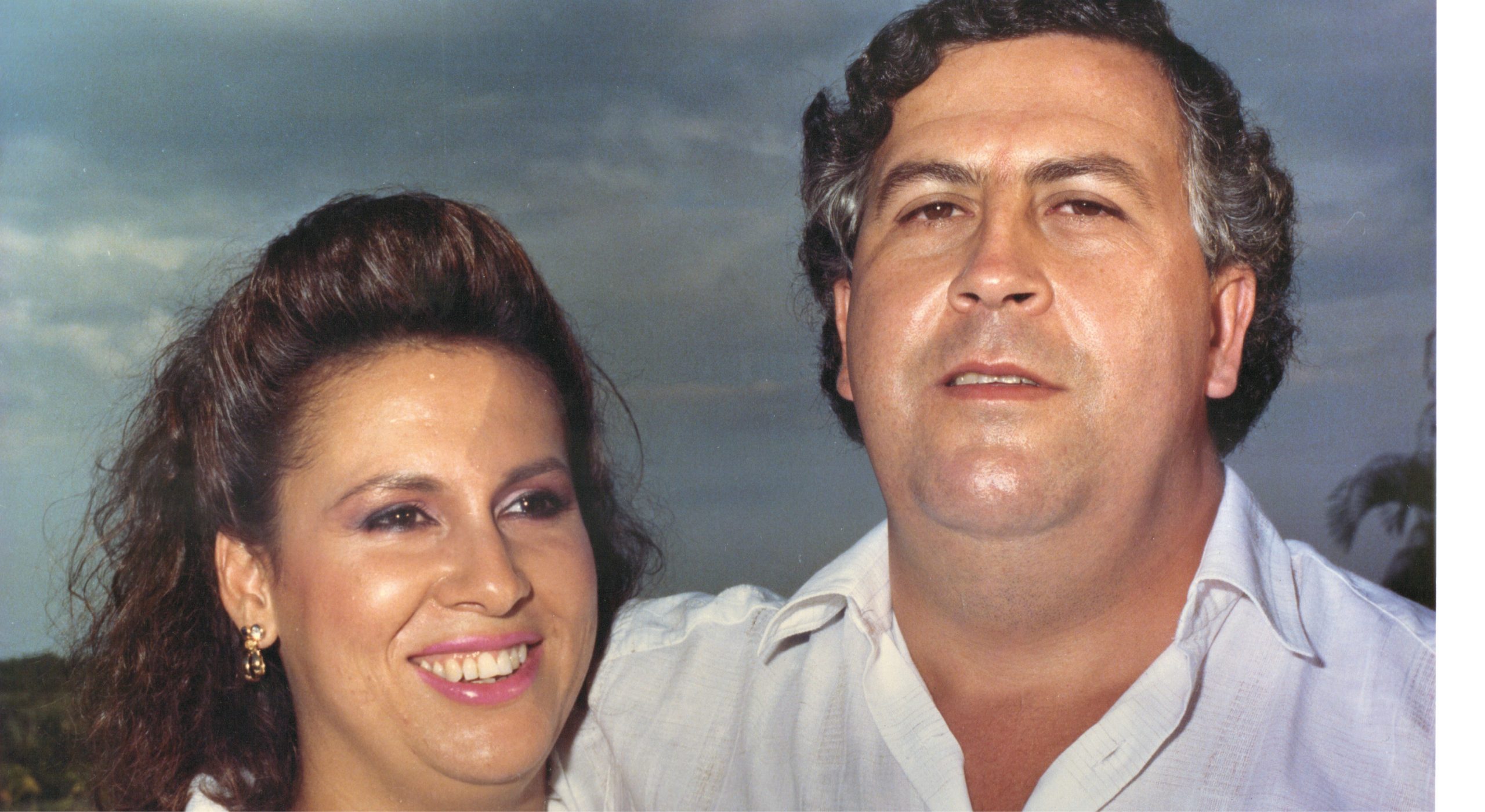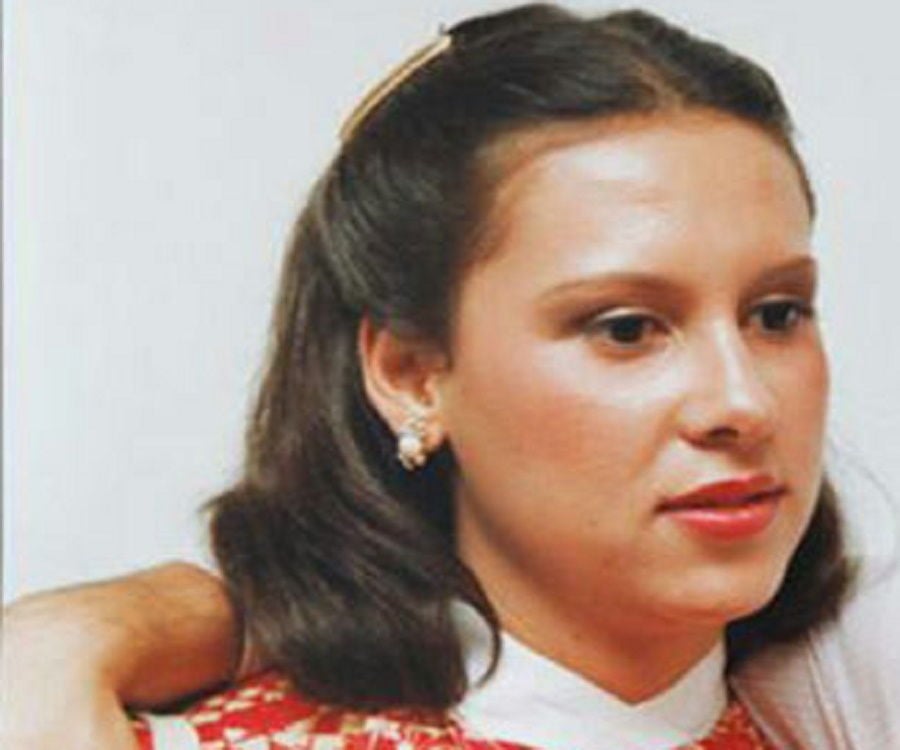María Victoria Henao: Her Story, Beyond The Shadow
Have you ever wondered about the lives touched by history's most compelling figures? So, too it's almost, the story of María Victoria Henao offers a look into a life that was, in a way, shaped by extraordinary circumstances. She is a person whose name, like many others, might seem simple at first glance. However, her experiences give it a depth that is quite unique, especially when you consider the path she has walked.
The name "María," as we know, carries a lot of history and meaning across many cultures. My text points out that it is often a girl's name, very widely used, and sometimes part of a double name, like "María Carmen" or "María Dolores." It is a name that, you know, can signify many things, from tradition to a kind of quiet strength. For María Victoria Henao, her name, while common, became attached to a life that was anything but ordinary, making her story, in some respects, truly stand out.
This article will explore the life of María Victoria Henao, moving beyond the headlines and common assumptions. We will look at her early life, the challenges she faced, and how she has worked to rebuild her existence. It's about understanding her journey, nearly, from her own viewpoint, offering a more complete picture of a person who has lived through a lot and, you know, has a lot to share.
Table of Contents
- Who is María Victoria Henao? A Life Story
- The Impact of a Name: María and Identity
- Life in the Shadow: Challenges and Survival
- Finding Her Voice: The Memoir and Beyond
- Frequently Asked Questions About María Victoria Henao
- Conclusion
Who is María Victoria Henao? A Life Story
María Victoria Henao, also known by her married name, Victoria Eugenia Henao, is a woman whose life story is deeply connected to a very significant, and indeed, often difficult period in Colombian history. She came to public attention through her marriage to Pablo Escobar, the infamous drug lord. Her experiences provide a rare, personal glimpse into the inner workings of a life lived under constant scrutiny and, you know, immense pressure. Her story is one of survival and, in a way, seeking peace after years of turmoil.
Early Years and a Fateful Connection
Born in Colombia, María Victoria Henao’s early life was, in some respects, quite ordinary before her connection with Escobar. She was very young when they met, and their relationship developed quickly. This union, apparently, set the course for a life that would become anything but conventional. The story of her early years and her eventual marriage is a complex one, marked by the rapid rise of Escobar's influence and the subsequent, nearly, dramatic changes it brought to her world. It's a tale that highlights how quickly a person's life can change.
Here are some personal details about María Victoria Henao:
| Detail | Information |
|---|---|
| Full Name | María Victoria Henao Vallejo |
| Also Known As | Victoria Eugenia Henao |
| Birth Year | 1961 (approximately) |
| Nationality | Colombian |
| Spouse | Pablo Escobar (married 1976) |
| Children | Juan Pablo Escobar (now Sebastián Marroquín), Manuela Escobar |
| Known For | Wife of Pablo Escobar, Author of "Mrs. Escobar: My Life with Pablo" |
The Impact of a Name: María and Identity
The name "María," as my text explains, is a female given name, equivalent to "Mary" in English. It's a name that has been around for ages, used in Spanish, Italian, and Portuguese cultures, among others. My text also mentions how "María" can be part of a double name, sometimes referencing an aspect of the Virgin Mary, like "María Dolores." This tradition of naming girls after specific titles of Mary or feast days is very common, too.
For María Victoria Henao, her name carries this general cultural weight, but her personal story adds, you know, a very specific layer to it. The name "María" often evokes ideas of tradition, family, and sometimes, a quiet strength. In her case, it became associated with a life that challenged every one of these concepts. She had to, arguably, redefine what "María" meant for her, moving from a traditional role to one of a survivor and, eventually, a storyteller. It's a testament to how a common name can become deeply personal and, in a way, represent a unique journey.
Consider the story of "María" and her cousin Efraín, natives of Valle del Cauca, as mentioned in my text, where their love unfolds in a romantic and bucolic landscape. This shows how the name "María" can be linked to stories of deep human connection and, sometimes, tragedy. For María Victoria Henao, her life, while not a novel in the same sense, certainly had its share of intense human drama and, you know, very profound challenges. Her experience, in a sense, adds another chapter to the many stories connected to the name "María."
The name "María" is also seen in popular culture, like "María Callas" or "María" from Sesame Street, as my text notes. This widespread use means the name carries a certain familiarity, yet for María Victoria Henao, her life was anything but familiar to most. She had to, basically, live a life that was completely different from what anyone might expect when they hear such a common name. It shows how personal identity can diverge so much from the general perceptions associated with a name, you know, truly.
Life in the Shadow: Challenges and Survival
Living as the wife of Pablo Escobar meant facing a life filled with constant danger and, you know, extreme uncertainty. María Victoria Henao endured years of hiding, threats, and the constant awareness of the violence surrounding her. It was a time that, in some respects, few people could truly imagine. She had to, very often, make difficult choices to protect her children and herself, navigating a world that was, apparently, always on the brink of collapse.
The pressures on her were immense, and the public perception of her was often, naturally, tied directly to her husband's actions. She was, in a way, stripped of her own identity, becoming known primarily as "Escobar's wife." This experience highlights the very real human cost of such a life, affecting not just the main figures but also those, like her, who were caught in their orbit. It's a story of trying to keep a family together amidst chaos, which is, you know, a huge task.
Navigating a New Reality
After Escobar's death, María Victoria Henao and her children faced a completely new, yet still very challenging, reality. They had to leave Colombia, seeking refuge and a fresh start in other countries. This period was marked by attempts to shed their past identities and build new lives, away from the shadow of Escobar's legacy. It was a struggle to find acceptance and, you know, rebuild a sense of normalcy. They had to, basically, start from scratch, which is a very hard thing to do.
The process of rebuilding involved changing names, moving frequently, and trying to integrate into new societies while keeping their past a secret. It was a quiet battle for survival and, in a way, for peace of mind. Her journey during this time shows a remarkable determination to provide a safer, more stable future for her children, despite the many obstacles they faced. It's a testament to a mother's resolve, truly.
Finding Her Voice: The Memoir and Beyond
After many years of silence, María Victoria Henao decided to share her story in her memoir, "Mrs. Escobar: My Life with Pablo." This book, released in recent years, offers her personal account of her life with Escobar, providing insights into their relationship and the events that unfolded around them. It's a brave step, you know, to tell such a personal and often painful story to the world. The memoir allows readers to hear her side of events, which had long been, in some respects, overshadowed by others' narratives.
The decision to write the book was, apparently, driven by a desire to set the record straight and to provide her own perspective on a life that has been heavily scrutinized and, you know, often misrepresented. It's an act of reclaiming her narrative, offering a human face to a story that has often been told through a lens of crime and sensationalism. This effort to share her truth is, in a way, a significant part of her healing process.
Her memoir provides a unique look into the domestic life of one of the world's most notorious figures. It explores the complexities of her relationship, the fear, the loyalty, and the survival instincts that guided her. Readers get to see a different side of the story, one told from the perspective of someone who lived through it all, which is, you know, very important for a complete picture. You can learn more about her book and its impact by looking at reviews and interviews, too.
Her Perspective Today
Today, María Victoria Henao lives a much quieter life, far from the public eye that once consumed her. Her focus is on her family and, in some respects, on living a life of peace. She has, you know, spoken about the importance of forgiveness and moving forward, even after experiencing so much difficulty. Her perspective has, apparently, shifted from merely surviving to finding a way to contribute positively, perhaps through her art or by sharing her story.
She often speaks about the lessons learned from her past, emphasizing the importance of ethical choices and, you know, the true value of freedom. Her journey is a powerful example of resilience, showing how a person can, basically, rebuild their life and find meaning even after experiencing profound loss and public judgment. It's a testament to the human spirit's ability to adapt and, in a way, to grow. You can learn more about family legacies on our site, and link to this page Understanding Colombian History for more context on the era she lived through.
Frequently Asked Questions About María Victoria Henao
Many people have questions about María Victoria Henao, given her past. Here are answers to some commonly asked questions:
Is María Victoria Henao still alive?
Yes, María Victoria Henao is alive and, you know, has been living a private life for many years. She has, apparently, made efforts to stay out of the public spotlight since her husband's death, though her memoir brought her back into public discussion somewhat.
What is María Victoria Henao's book about?
Her book, "Mrs. Escobar: My Life with Pablo," is a memoir that tells her personal story of growing up, meeting Pablo Escobar, their marriage, and the challenges she faced during his rise and fall. It provides her perspective on the events and, you know, her life after his death.
Where does María Victoria Henao live now?
After leaving Colombia, María Victoria Henao and her children sought asylum in different countries, including Argentina. She has, in some respects, maintained a low profile since then, and her exact current location is generally kept private for security and personal reasons, which is, you know, very understandable.
Conclusion
The life of María Victoria Henao is, in a way, a compelling story of survival, resilience, and the search for identity beyond a very powerful shadow. Her journey, from being known as "Pablo Escobar's wife" to becoming an author sharing her own truth, offers many insights into the human spirit's capacity to endure and, you know, to rebuild. It reminds us that every person, regardless of their past connections, has a unique story to tell, and that understanding these personal accounts can, basically, help us grasp the larger human experience.

What Happened To Maria Victoria Henao, Pablo Escobar's Wife?

Pablo Escobar's Wife: The Untold Story Of Maria Victoria Henao

Maria Victoria Henao – The Topsy-Turvy Life Story of Pablo Escobar’s Widow